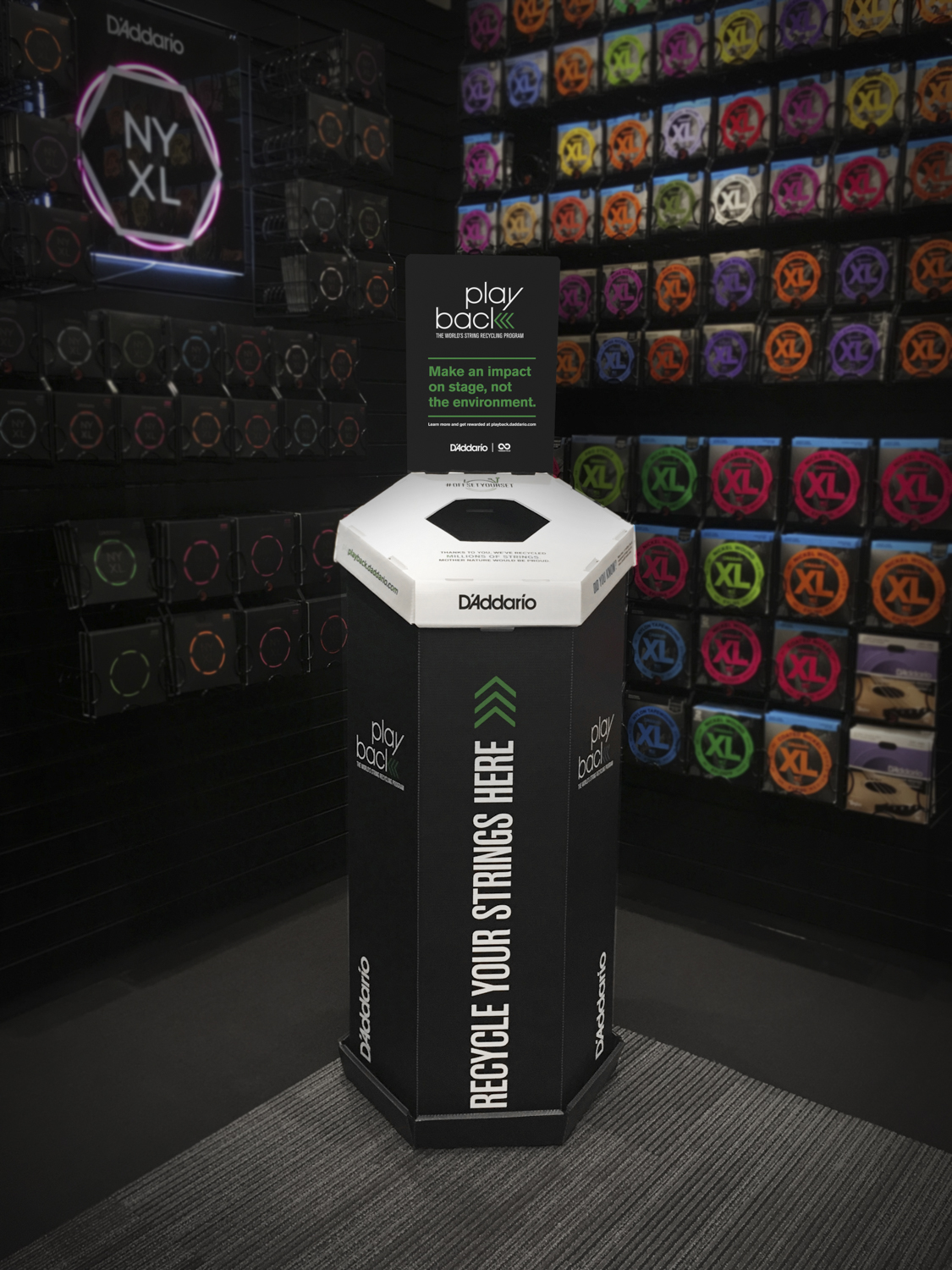 D’Addario’s String Recycling Program Aims to Keep the Industry Bar High, Waste Low
D’Addario’s String Recycling Program Aims to Keep the Industry Bar High, Waste Low
Ever since it was founded 30 years ago, Breedlove Guitars has kept fine-tuning the company’s efforts to protect the planet as it crafts premium instruments. Breedlove has not only developed innovative luthier technology; it has nurtured strategic partnerships along the way with brands that share our respect for the environment.
A shining example of Breedlove’s tireless effort toward creating both sustainable and sonically superior acoustic guitars is the new Eco Collection, which incorporates our sustainable Eco Tonewood laminate technology — and features strings exclusively supplied by D’Addario. Breedlove chose to use D’Addario strings for this new line of instruments not only because of their superior sound and quality, but also because the string-maker’s values are complementary with ours, with D’Addario leading the string industry in sustainability practices. Its Playback program is an uncommon initiative for recycling mixed-metal guitar strings, which helps reduce the 1.5 million pounds of waste strings that have ended up in landfills yearly.
Brian Vance, Vice President of Fretted Strings and Accessories at D’Addario, says that the company started this ground-breaking program about six years ago as part of an ongoing effort to reduce the environmental impact of the approximately 14 million sets of strings it makes annually. Even before Playback, D’Addario aimed to be greener by redesigning its packaging to eliminate the six individual paper envelopes typically used to identify and protect each string inside the package.
“We came up with a way to put all the strings together in one bag, and then that bag itself is recyclable and acts as a corrosion inhibitor,” Vance explains. “So, it protects the strings better, but then each string has a colored ball on the end that becomes the code to identify which string is which. By eliminating all that paper, we’ve saved a lot of trees over the past 30 years.”
Vance estimates that about half of the strings produced in the industry now incorporate this colored-ball method for packaging strings, evidence that D’Addario’s initiative to protect the environment has influenced the entire industry. Such success helped motivate the company to take its environmentalism further with Playback.
“Playback is a unique program because you were never able to just take your old guitar strings and put them in a recycling bin,” Vance says. “Strings are made of so many different types of metals and each one of those metals is completely different in terms of its reusability and recyclability. So, unless you were going to physically unravel a string and take it apart and then put all the individual components in separate bins, guitar strings have traditionally been unrecyclable, basically.”
But D’Addario found a company willing to put in the labor to make recycling guitar strings a reality: TerraCycle, a New Jersey-based company that’s “on a mission to eliminate the idea of waste” by creating and implementing recycling programs for companies whose waste can’t be processed at the usual municipal recycling facilities. “They’re a fantastic organization,” Vance says. “Their mission is to help companies or even whole industries either upcycle or recycle materials that had traditionally ended up in a landfill.”
From there, D’Addario began to offer an incentive to their dealers and customers to use Playback by making it easy, free and rewarding. All a consumer or dealer has to do to recycle their old strings is collect at least two pounds of them, pack them however they like, and then print a mailing label off the website for D’Addario’s Players Circle, a free loyalty program for consumers, for shipping to TerraCycle. (There’s also a map on the Playback site so you can see if there’s a Playback collection location near you.)
Once TerraCycle receives the old strings, D’Addario gives a Players Circle customer points that can eventually be redeemed for new sets of strings or other merchandise. “It’s similar to an American Express or Starbucks rewards program,” Vance says. “The more strings you buy from us, the more you can save up points. Then you can get free products with the points.”
The ease of the program seems to be working. So far, Playback has recycled six million strings in the U.S., with a goal of reaching eight million by the end of this year. “It costs us money, but if you want to do something that you believe in, sometimes you just have to pay for it,” Vance says. “Organic food costs more, but people who are into that are willing to spend more money. We’re the biggest string manufacturer in the world. And if you’re a big company in a small industry, you have a responsibility to set the guidelines and standards for the rest of the business. It’s our responsibility to do what’s right.”
To that end, D’Addario has made Playback available to the entire industry, with the program accepting strings from any brand (including nylon and orchestral strings). The company has even partnered with one of its competitors, Martin Guitar Strings, to broaden the program’s impact. “Martin had similar goals, so we invited them to partner with us,” Vance explains. “They use the logos from our displays, and they support Playback on their website. I think it would be really cool if all the major brands had that logo on display someday. Because if you get the whole industry doing this, that’s how we’re really going to get critical mass for recycling strings and doing the right thing for the environment.”
To learn more about how you can recycle your guitar strings as a dealer or customer, check out the Playback website.
